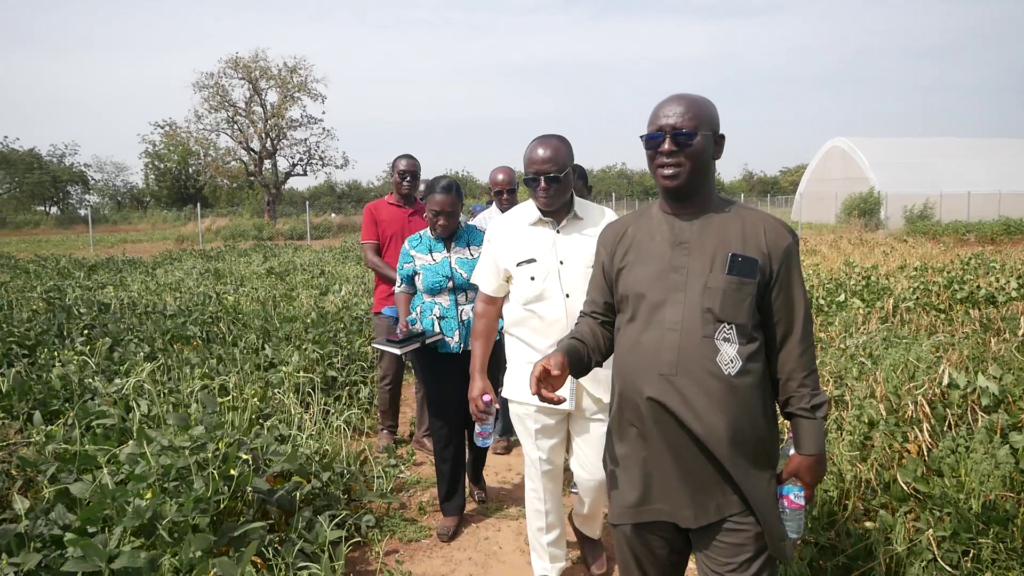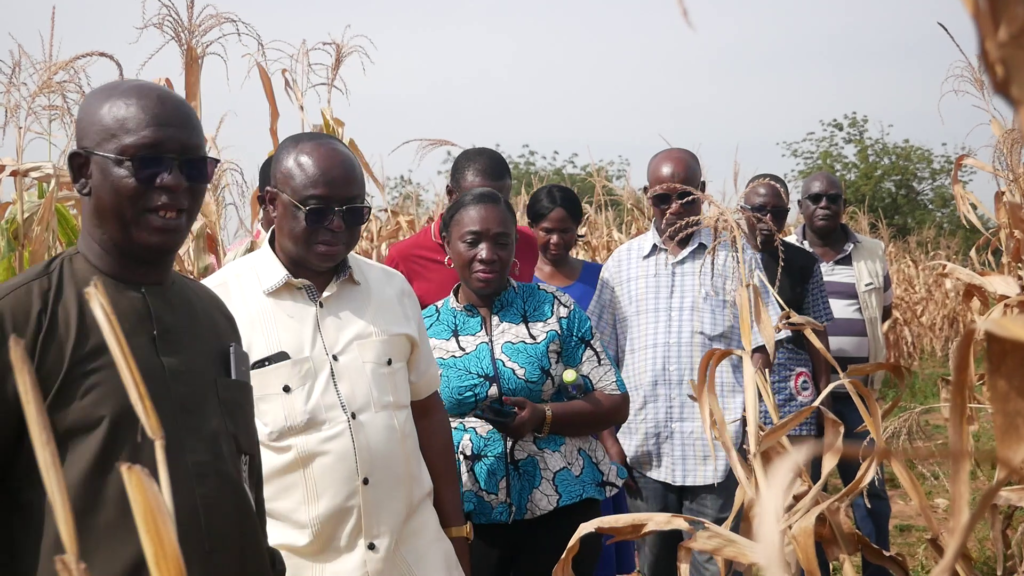
The National Coordinator of the Food Systems Resilience Programme (FSRP) at the Ministry of Food and Agriculture, Mr. Osei Owusu-Agyeman, has expressed his commitment to providing sustained support for research initiatives undertaken by the CSIR—Savannah Agricultural Research Institute (SARI). He emphasized the importance of implementing capacity-building programs designed to cultivate resilient crop varieties that can effectively address the myriad challenges faced within the agricultural sector.
According to Mr. Owusu-Agyeman, it is essential to attract more young people to commercial agriculture by providing improved technology and high-yielding crop varieties that can enhance their income. He emphasized that any youth interested in entering the agriculture sector should not face barriers in acquiring land, financing, or farm equipment necessary for farming.

He noted that capacity-building programs play a crucial role in agriculture, as they equip young farmers with the skills and knowledge needed to adopt new technologies and practices. However, the Technology park initiatives would help farmers to effectively utilize innovations to increase productivity and sustainability in their operations. By fostering a skilled workforce, the agricultural sector can better tackle challenges such as climate change, pest management, and resource scarcity.
“We visited the technology park and observed the capabilities of SARI, which offers a variety of technologies that can be adopted to address food security challenges. We commend their efforts and assure them that FSRP will continue to support research in this area. We are committed to allocating significant resources to it. We are also encouraging our researchers to focus on the commercial aspect, which represents the future of agriculture,” he stated in an interview with Hoenyefia Noah Nash after touring the CSIR-SARI Technology Park in Nyankpala, located in the Tolon district.
Mr. Osei further asserted the need for research institutions and policymakers to take decisive action in addressing the pressing unemployment challenges that our country faces. He highlighted that the agricultural value chain comprises numerous business opportunities that can create meaningful jobs for youth. Young people must be presented with viable options, backed by compelling fact sheets that demonstrate the potential returns on investment in the agriculture sector, which includes diverse branches such as fishing, animal husbandry, seed production, transportation, processing, and production.
“The goal is to view agriculture as a business. The future lies in commercial agriculture, and the youth do not need to own 100 acres of land. We need to prepare fact sheets for every crop that will be cultivated and highlight the essential agricultural practices that young people should adopt. These fact sheets should include detailed information on expenditures and benefits. For example, if we focus on pig farming, we should cover the necessary structures for keeping pigs, feeding costs, and other related expenses. This kind of information can attract young people and help them make informed investment choices. This is the future of agriculture, and we must embrace it,” he reiterated.

Mr. Osei Owusu-Agyeman praised the Savannah Agriculture Research Institute (SARI) for its model of engaging with farmers and youth in the Tolon district at the Agricultural Technology Park. This initiative showcases various improved crop varieties along with the best agronomic practices to enhance yield potential, making it easier for any farmer to adopt. He emphasized that this approach offers hope to farmers who face the risk of yield loss each year.
He further predicted that the introduction of free Senior High School (SHS) education would significantly increase literacy among youth and farmers, potentially redirecting their interests toward commercial agriculture and investment opportunities. He remarked, “With the implementation of free SHS, every young farmer will possess at least an SHS education and the ability to read, representing a substantial improvement compared to the majority who currently lack reading skills. Once literacy is achieved, this presents a challenge for us as public servants and policymakers.”
Dr. Francis Kusi, Director of the Savannah Agricultural Research Institute (SARI), underscored the significance of the technology park to the institute and expressed appreciation for the support provided by CORAF and its partners, including the FSRP and IREACH initiatives. He noted that such support has greatly contributed to the establishment of the technology park, enhancing the knowledge base of many visitors. “This platform allows us to showcase our most promising technologies for the 2024 cropping season. We have welcomed a diverse array of stakeholders, including the USAID Mission, the French Ambassador, IITA, AGRA, seed producers, and students. This engagement serves to illustrate our research contributions and the value we offer to the nation,” Dr. Kusi stated.
Technology Park Fact
The CSIR-Savannah Agricultural Research Institute (SARI) Technology Park was inaugurated in June 2024, featuring a comprehensive array of 74 technological innovations that encompass 10 crops, 69 varieties, and five agronomic practices for implementation.
The establishment of the SARI Technology Park received funding from the West and Central African Council for Agricultural Research and Development (CORAF) and the Innovation Research Extension and Advisory Coordination Hub (iREACH), in collaboration with the Food Systems Resilience Programme (FSRP). This cutting-edge technology park is intended to bolster agricultural innovation and enhance capacity building in Northern Ghana.
Furthermore, the park functions as a demonstration and learning hub for students, farmers, and various stakeholders engaged in agriculture. It showcases climate-resilient crops essential for food security, including millet, maize, cowpea, soybean, potato, yam, Frafra potato, groundnut, rice, and cassava. Additionally, the park emphasizes integrated soil management practices, optimal planting methods that consider spacing, and effective seed multiplication strategies, among other relevant initiatives.
Source: Ghana/Starrfm.com.gh/103.5FM/Noah Nash Hoenyefia
